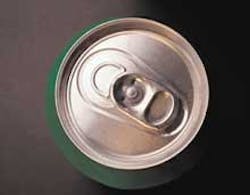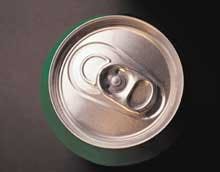How do we stop them from popping the top?
by Sheri B. Doniger, DDS
Over the past year, the media and dental literature have highlighted the dilemma of having cola beverage machines in schools. Cola machines cause problems on several levels. For teens and young adults, the drink of choice — more often than not — is a cola for that jolt of caffeine, sugar, or both. Dentally speaking, the issues of caries are utmost in our minds. Other health concerns — such as cola's empty calories, lower consumption of calcium (due to drinking cola products instead of milk), and an overabundance of caffeine — are present as well.
The number of interproximal caries cases has risen in my practice. When questioned, many patients respond that they consume a large amount of sugared pop. This, in addition to other factors, leads to an increase in caries.
On the other side of the coin are school administrations and their budgets. Schools constantly seek methods of defraying operating expenses, "finding" money for existing or start-up programs, or supplementing student extras without further taxing the residents. With dollars being tight, the school districts creatively look to corporate America for assistance without burdening taxpayers. Beverage companies offer needed dollars to schools via their vending machines.
Local school districts, in exchange for exclusive rights to sell the company's product in the schools, gain needed funding. The beverage companies reap benefits on many fronts. In addition to gaining revenue of their own, increasing their product distribution and sales, they receive valuable advertising indirectly. Yes, the school districts also "win" by gain additional funding, but at what cost?
With beverage machines in various school locations and the company's products in prominent display, schools serve two purposes for the cola manufacturer. Primarily, cola companies' ability to enter into our educational arenas gives credence to their cause. In theory, if a student sees vending machines in school, he or she may believe that the school sanctions cola, sports drinks, and juices as consumable options.
Some argue that if students do not purchase cola at school, they would just go up the street to the local grocery, fast food restaurant, or convenience store to buy it there ... so why shouldn't the schools profit? While this is true for high schools, where the students have flexibility in being "on campus" or "off campus," what about grade schools and middle schools? Again, cola companies have a marketing coup. These students are not allowed to leave school during the day. With vending machines in place, the students have a choice of cola, juice, or milk. Given the possibility that cola is not an option at home, students will choose cola over milk.
Secondarily, they assist the cola companies' marketing. Students drink more cola than milk. Cola consumption is up 2.5 times over the past 25 years. Targeting younger audiences can ensure a purchaser for life.
Schools that have federally subsidized breakfast or lunch programs are not allowed to vend in school cafeterias — an advantage for the nutritionists.
Some school districts are using this "cola money" to pay for student-based activities — proms, DJs at dances, food for classes or activities, gifts for kids who do things around school, school spirit items, or parent groups such as Parent-Teacher Associations, Theatre Parents, and Music Parents. This would be the logical choice since students are directly responsible for generating the revenue. The funding also has helped to defray summer-school tuition, field trip or activity fees, and PE uniforms for needy students. Other districts have spent the money on landscaping, security uniforms, and scoreboards. Finally, some schools place portions of this revenue into their education fund to pay for the district's day-to-day operating expenses.
Research has shown that healthy snacks and beverages assist in the cognitive process. While we try to educate our patients about the evils of consuming carbonated sugar water (or "liquid candy" as referred to by Michael Jacobson, PhD, at the Center for Science in the Public Interest), we may be fighting a losing battle.
Amazingly enough, school administrations are aware of this. But the need for funding overrides the health issues.
As the "cola wars" that are being fought to engender brand loyalty and higher sales rage on, we may be losing our battle in the schools. Unless other methods of creative funding are found to replace these seemingly innocuous cola machines that appear in our school hallways, the battle may be weighted against the good guys.
References available upon request.
Sheri B. Doniger, DDS, practices in Lincolnwood, Ill. She graduated from the University of Illinois College of Dentistry in 1983 and obtained her bachelor's degree in dental hygiene from Loyola University of Chicago in 1976. She can be reached at (847) 677-1101 or [email protected].
